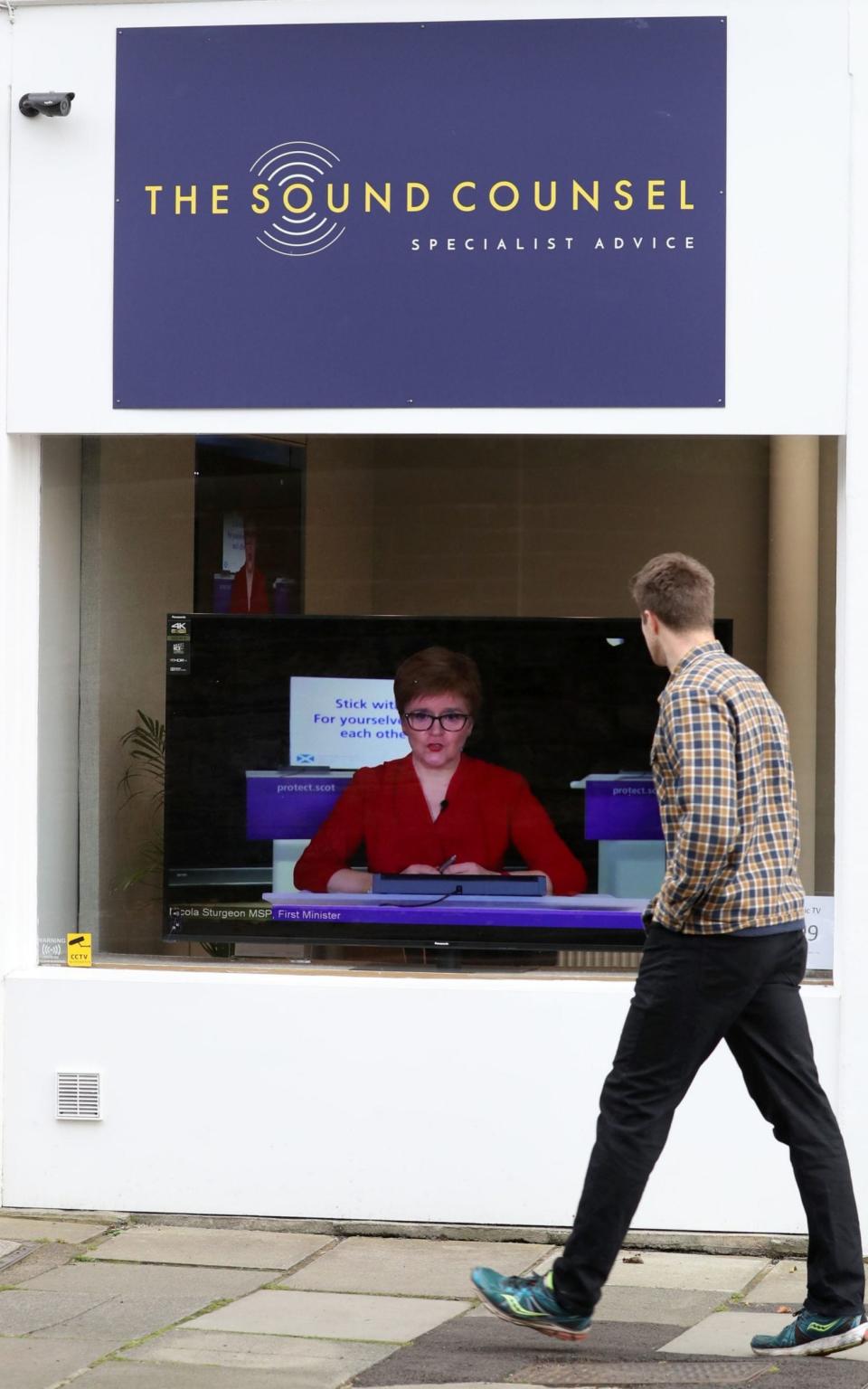Covid-hit parts of Scotland could be 'sealed off' as Johnson agrees to travel ban talks

Parts of Scotland hardest hit by Covid-19 could be sealed off from the rest of the country under travel ban plans being considered by Nicola Sturgeon.
The First Minister said that a possible clampdown on leisure travel, which would see laws replace non-enforceable advice and guidance, would apply to internal movement within Scotland as well as for travellers crossing the border.
A ban on travelling into Wales from Covid hotspots elsewhere in the UK came into force on Friday, while there were already formal restrictions on internal travel within the country. Ms Sturgeon has said she admires the controversial Welsh model and is actively considering adopting similar measures in Scotland.
Speaking at her daily briefing, she confirmed that any new rules would apply to travel within Scotland, as well as over the border into England.
It would mean, for example, that people could be breaking the law and potentially fined if they travelled from parts of the Central Belt, where there are a high number of cases, to the Highlands, where prevalence is low, if they did not have a reasonable excuse.

The First Minister said that Boris Johnson had replied positively to her letter calling for talks about a pan-UK approach on travel restrictions. However, she has made clear that she is prepared to act alone if there is not agreement.
While advice against non-essential travel to and from the Central Belt is currently in force, Ms Sturgeon said she was “weighing up” whether a regulatory approach, which would allow police to enforce rules and impose fines, might be “more meaningful”.
“Any travel restrictions, should you decide that they have to be mandatory, this is not just about cross-border,” she said. “Which is why I keep saying this is not some constitutional point or political point. It’s [about] high to low prevalence.
“If that’s within Scotland, within England or within Wales, then you have to consider that there, but equally you have to consider it if it’s between any of these countries.
“Right now my advice to anyone from Greater Glasgow and Clyde is not to go to the Highlands unless you really need to.”
Currently, there are wide disparities in virus prevalence in different parts of Scotland. In Glasgow over the past week, a rate of 264.6 cases per 100,000 people has been reported, rising to 320.4 in South Lanarkshire. However, Highland has a rate of just 14, with Moray, Aberdeenshire and Perth and Kinross recording 25 cases per 100,000 or fewer.
While Mr Johnson has told Ms Sturgeon he is open to talks about formalising travel bans, and has asked Michael Gove to hold talks with devolved administrations next week, it is understood the UK Government remain concerned about how any legal ban could be enforced.
Earlier in the year, when Ms Sturgeon raised the prospect of requiring people crossing the border into Scotland to quarantine, Mr Johnson branded her comments “astonishing and shameful”.
After the First Minister refused to rule out the move, masked Scottish nationalist protesters descended on the border to urge visitors to “stay out”.
However, senior UK Government sources said that they were more relaxed about the prospect of travel restrictions so long as rules were applied equally on both sides of the border, and were based on local case numbers.
Ms Sturgeon said she was not aware of comments from the Police Federation of England and Wales which has described the Welsh Government’s policy as unenforceable, but admitted policing new restrictions could prove difficult.
“If you put it in law, with enforcement attached, of course there are going to be practical challenges,” she said. “You might say that’s not the easiest thing to enforce, but even taking account of that it would still deliver some benefits over and above a voluntary approach.”
A spokeswoman for the UK Government said: “It is clear that this virus does not respect geography and any new local spikes need all levels of Government to work together. It is clear from the higher R values in Northern Ireland and Scotland that no part of the UK is untouched.
“We’ve been working closely with the devolved administrations to support communities in every part of the UK and it is important that people follow their local guidance.
“From the outset, our guidance has also been very clear that people from very high prevalence areas should avoid travelling in or out of that area.”

 Yahoo Movies
Yahoo Movies 
